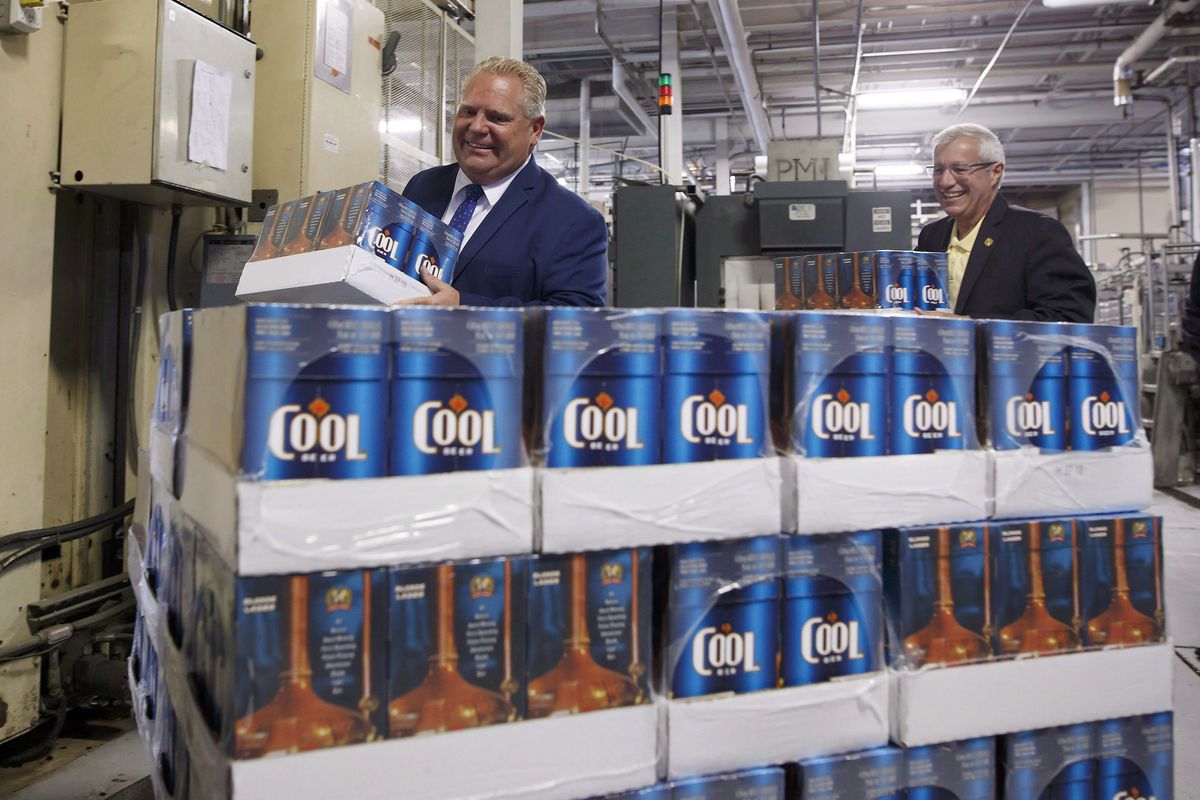- cross-posted to:
- [email protected]
- cross-posted to:
- [email protected]
The Ontario Public Health Association … cites multiple studies showing that increases in the number of places where alcohol can be bought in Ontario, and in other jurisdictions, have already led to more consumption and more of the harms that come with it, such as suicides, drunk driving, emergency-room visits and higher rates of cancer.
I enjoy booze, but I like that it’s hard to get. I don’t need any more encouragement to mess up my liver.



I’m in favour of this, if for no other reason than the Beer Store needs to die, or at the least the sweetheart deal with the province needs to. Absolutely ludicrous that a company owned by foreign corporations is granted a monopoly over the sales of 12 and 24 packs of beer and distribution rights to restaurants and bars. They’ve done far too good a job of fooling the public into thinking it’s government run while they fleece us and lobby away our choice.
You just described Canada with interchangeable contextual puzzle pieces! lol
Not worth it. Add a bunch of actual societal issues to fix an ideological issue (oh no, a foreign capitalist instead of a domestic one) that won’t actually benefit anyone here.
This feels like pearl clutching to me…are there any stats to support that things are measurably worse in Quebec where they’ve had beer in convenience stores for ages?
Are you seriously asking if the FRENCH drink more than Ontario, the most boring and repressed place in all of Canada? I mean I don’t know but my gut says yes?
Okay, let me google that for you… In 2021-2022, Canadians drink 3.9 beers a week. Ontarians drink 3.7 beers a week, and Québécois drink 4.3 beers a week. So yes, there is a significant difference, but I am not qualified to say why, and I’m not likely to accept that you are, either.
Incidentally, I also learned that ten years ago governments in Canada earned $441 of tax revenue a year from alcohol from each drinking age Canadian. That’s not nothing. So DoFo might believe he has an incentive to increase drinking to improve his short term outlook, rather than actually looking out for our best interests.
Thing is, the reason The Beer Store exists as its own privately owned entity and not integrated into the government-controlled LCBO is because beer is considered to be the least dangerous alcoholic beverage. We have not believed it needs the same government oversight.
If we are changing our tune about the dangers of beer then the Master Framework Agreement still has to go and the LCBO needs to take control of the beer market. There is simply no justification for the Master Framework Agreement no matter how you slice it.
If we still believe that beer is a less dangerous alcoholic drink, as we always have, then your link is troubling. Ontario consumes substantially more spirits – considered to be the most dangerous drink – as compared to Quebec. If people are going to drink, we would benefit from encouraging them to drink the least dangerous option.
I don’t recall saying anything about the amount they’re drinking but rather if things were worse ie drunk driving fatalitie, etc. Your biases on the topic appear to be showing…
TIL that I am 8 Canadian people.
The Beer Store is a societal issue. It puts the binge drinker’s special – 24 bottles of beers for the evening – up front and centre, without much indication that you can buy singles from behind the Soviet-era counter. The data is fairly clear that people drink less when the beer is sold in small quantities (e.g. by the individual can, as is typical for craft beer). The first step in seeing reform is starting.